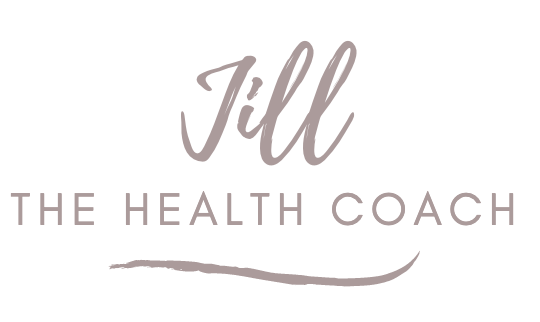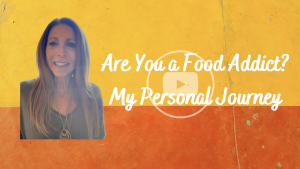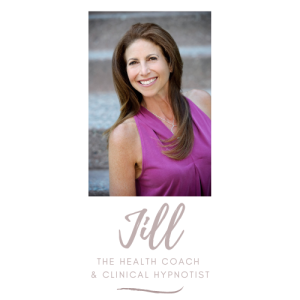Do you experience any of these on a regular basis?
- Cravings and Obsession: Frequent and intense cravings for specific types of food, often high in sugar, fat, or salt. Persistent thoughts and preoccupation with food, even when not hungry or full.
- Loss of Control: Difficulty stopping or controlling the amount of food consumed, often leading to overeating or binge eating episodes. Feeling powerless to resist the urge to eat certain foods.
- Emotional Eating: Turning to food as a coping mechanism to deal with stress, anxiety, boredom, loneliness, or other emotional triggers. Using food as a source of comfort or reward.
- Eating in Secret: Consuming large quantities of food in private or hiding food to avoid judgment or scrutiny from others. Feeling ashamed or guilty about eating habits.
- Withdrawal Symptoms: Experiencing physical or emotional discomfort when attempting to cut back or eliminate certain foods from the diet. These symptoms may include irritability, restlessness, mood swings, or increased cravings.
- Continued Consumption Despite Negative Consequences: Persisting in compulsive eating behaviors despite experiencing adverse effects on physical health, weight gain, or negative impact on relationships, work, or social activities.
- Failed Attempts to Control Eating: Repeatedly trying various diets or restrictive eating plans, but ultimately returning to old patterns of overeating or bingeing. Feeling trapped in a cycle of unsuccessful attempts to control food intake.
- Tolerance and Need for Increased Intake: Developing a tolerance to certain types of food, requiring larger quantities to experience the same level of satisfaction or pleasure. Needing to eat more to achieve the desired effect.
- Withdrawal from Social Activities: Avoiding social situations that involve food or making excuses to skip events where food is present to prevent overeating or losing control. Social withdrawal due to shame or embarrassment.
- Emotional Distress and Guilt: Feeling guilt, shame, or self-disgust after episodes of overeating or bingeing. Engaging in self-destructive thoughts or negative self-talk related to food and body image.
I experienced most of these.
I have actually struggled with food addiction for many years. For me, it started when I was around 16. Out of four kids, I was the only one that was chunky. In fact, I weighed almost 50 pounds more than I do today.
It was painful. I felt humiliated and embarrassed and out of control. In a house of 6 people, I would sneak a box of Entenman’s chocolate chip cookies or a sleeve of Ritz crackers to our bathroom. I would gorge on them and then promptly throw them all up. That way, binging on those foods would just cancel out, right?
It certainly didn’t work, and I finally had to give up my bulimic ways when I went to college as I lived in a co-ed dorms where we had community bathrooms. So, throwing up in public bathrooms would never do…
I continued to be a closet eater for many years, as I was too embarrassed to eat much in public as I always thought that everyone was looking at me. But when I fell in love with my husband-to-be, we were always together, and I couldn’t let him see my secret other life. So, I was able to curb my addiction and even got to a weight where I felt much better about myself.
I had also started working out regularly which was very helpful for me as it kept me in a healthier mindset. Plus, I noticed that when I was so happy, I didn’t think or obsess as much about food.
I would still closet-eat and binge here and there, with my weight fluctuating a bit. I was just always thinking about my next meal and what I could eat next.
Then, when my daughter got sick in 2005 with an autoimmune disease, we cured her by eliminating the inflammatory foods that was making her sick. So, as a family, we all ate the cleaner, healthier foods in the house. We realized the power of food which ultimately healed Rachel.
Of course that journey is why I became a Health Coach to begin with. And I continued always eating healthy foods, even more so than Rachel!
But just because you eat healthy, doesn’t mean you are no longer a food addict. So, while I was in complete control of WHAT I ate, I was still not in control of HOW MUCH I ate.
Over the years, I have struggled still binging with, but on more healthy foods such as cashews or cashew butter (so good with bananas), pumpkin seeds or flax seeds or seed crackers or Mary’s Gone Crackers or cassava chips or plantain chips or cooked apples and so much more.
Now, you may be thinking, really??
This is not really a problem with the types of food I eat. But when you eat A TON of them at a clip, especially at night when everyone else has gone to bed, it adds up. And it’s a problem when you recognize it’s a problem.
I have realized that when I’m my busiest and happiest, I don’t think about food as much. And of course, when I’m feeling stressed, I tend to obsess more and then binge more.
Can you relate at all?
It’s so tricky, isn’t it, as food is not only a necessity for survival; it is also a source of pleasure, comfort, and celebration.
However, for some of us, the relationship with food goes beyond a basic need and becomes a consuming addiction. Food addiction is a complex and often misunderstood condition that can have severe physical, emotional, and social consequences. Just as I have experienced myself.
Food addiction can stem from a combination of genetic, environmental, and psychological factors. Some individuals may have a genetic predisposition that makes them more susceptible to addictive behaviors.
Emotional factors, such as stress, depression, or a history of trauma, can also play a significant role in the development of food addiction. Additionally, the highly processed and addictive nature of certain foods can contribute to the cycle of addiction. I see this a lot especially with foods loaded with sugar and salt.
Those food companies know what they are doing as it has been proven that sugar and its derivatives such as high fructose corn syrup are more addictive than cocaine! These companies have known this for years. And it makes for a great business model with a never-ending supply of addicted customers craving for more.
Food addiction can take a toll on both physical and mental well-being. Excessive consumption of calorie-dense, nutrient-poor foods can lead to obesity, diabetes, heart disease, and other chronic health conditions. Moreover, the emotional distress and shame associated with food addiction can lead to low self-esteem, depression, and social isolation, further perpetuating the addictive cycle.
So, how do we break free from food addiction?
Overcoming food addiction requires a multifaceted approach that addresses both the physical and psychological aspects of the condition. Here are some strategies that can be helpful:
- Seeking Professional Support: Consulting with healthcare professionals, such as doctors, therapists, or health coaches like me, can provide invaluable guidance and support. They can help diagnose the condition, identify triggers, and develop personalized treatment plans.
- Building a Support Network: Connecting with others who have faced or are facing similar challenges can be immensely helpful. Support groups or online communities dedicated to food addiction can offer a sense of understanding, encouragement, and accountability.
- Reevaluating Food Choices: Gradually replacing highly processed, addictive foods with whole, nutritious alternatives can support the recovery process. Incorporating a variety of fruits, vegetables, whole grains, and lean proteins can help restore balance and nourish the body.
- Mindful Eating: Practicing mindful eating involves being present in the moment, savoring each bite, and listening to your body’s hunger and fullness cues. This approach can help break the cycle of mindless eating and create a healthier relationship with food.
- Stress Management Techniques: Since stress often plays a significant role in food addiction, implementing stress management techniques is essential. This may include activities like regular exercise, deep breathing exercises, journaling, or engaging in hobbies that promote relaxation and emotional well-being.
- Identifying and Addressing Underlying Issues: Food addiction can be a result of unresolved emotional or psychological issues. Seeking therapy or counseling to address these underlying concerns, such as trauma, anxiety, or depression, can contribute to long-term recovery.
For me, changing the food choices was huge. This greatly helped keep me from the weight getting out of control. But when I started doing more stress management with meditation and just keeping myself busy and happier, I definitely saw the most improvement.
The game changer was realizing that I have some underlying issues and stressors. Because, really, it’s not about the food, but how it makes you feel when you get that hit of dopamine (from the food). And that helps to distract from that root cause or stressor.
Food addiction is a complex and challenging condition that affects so many of us. Recognizing the signs, understanding the underlying causes, and seeking appropriate support are essential steps towards recovery.
Remember, overcoming food addiction is a journey that requires patience, self-compassion, and perseverance. With the right tools and support, it is possible to break free from the grip of food addiction and cultivate a healthier relationship with food and oneself.
I will be sharing next week some other tools that I have recently learned and am benefiting from that I’m excited to share. So stay tuned for Part 2.
If you think you are a food addict, I’m happy to chat with you so you know you’re not alone. Feel free to hit reply.
Xo,
Jill
P.S. For healthy food ideas, please check the foods I eat to keep me at my optimal weight and full of energy by checking out my free shopping list. And check out my video below.
“It is our choices that show what we truly are far more than our abilities.”
Live well and love more,
Jill Gordon
CHHC, MHt, MNLP, MTT, MSC, CLC
Certified Holistic Health Counselor, Master Certified Clinical Hypnotist*, Master Practitioner of Neuro Linguistic Programming*, Master Certified Life and Success Coach*
*Board Certified with IBCP (International Board of Coaches and Practitioners)
All material in this newsletter is provided for information only and may not be construed as medical advice or instruction. No action or inaction should be taken based solely on the contents of this publication;instead readers should consult appropriate health professionals on any matter relating to their health and well-being. The information provided has not been approved the Food & Drug Administration and is not intended to diagnose, treat, cure, or prevent any illness or disease.



